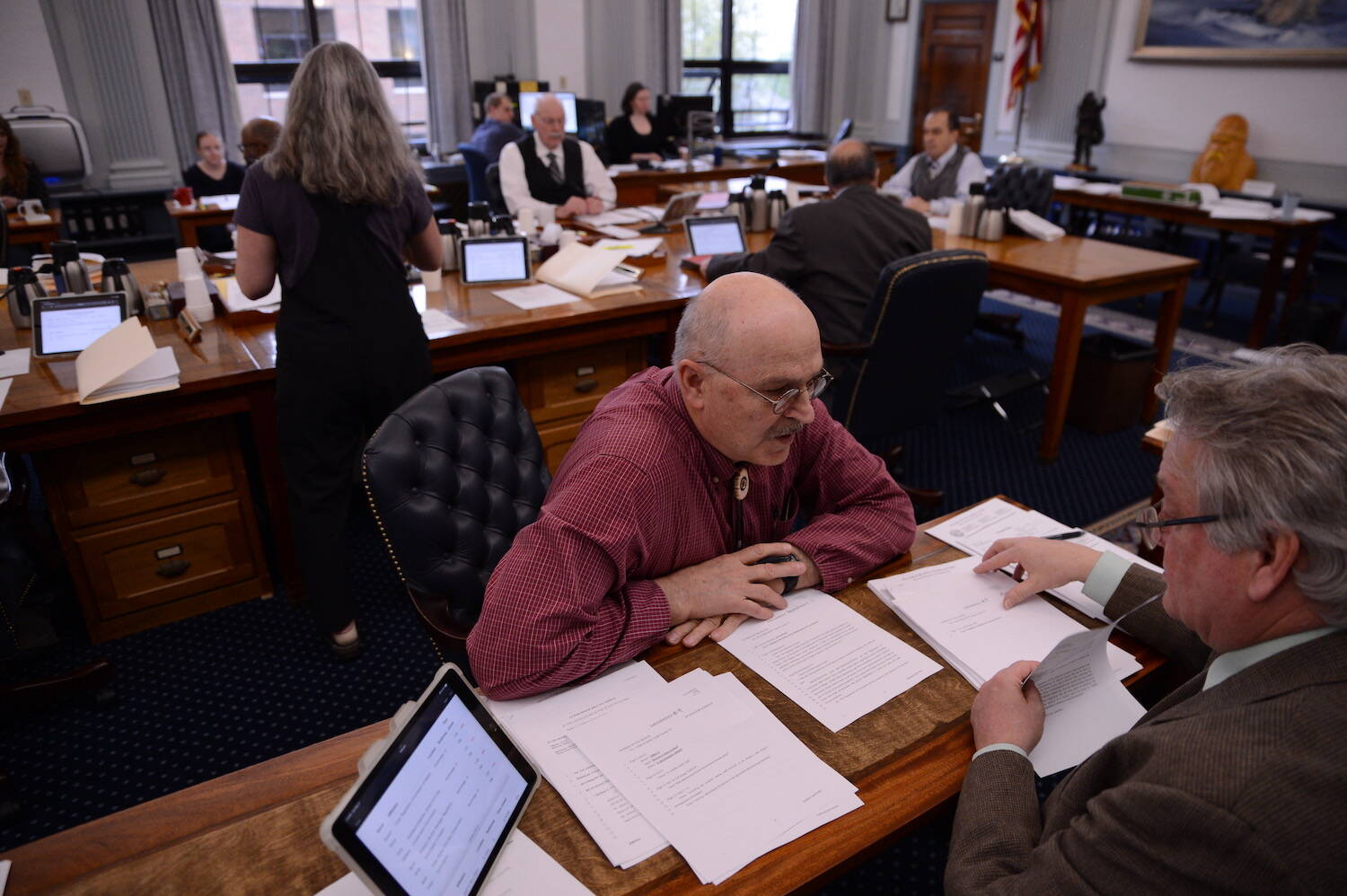Four days before the scheduled end of the Alaska Legislature’s regular session, a Senate committee has proposed a major increase in the state’s property tax exemption for disabled veterans, widows and Alaskans 65 or older.
On Sunday, the Senate Finance Committee proposed tripling the exemption from $150,000 to $450,000. An eligible Alaskan whose home is worth that amount or less would pay no local property taxes.
Ken Alper, an aide to Olson, told members of the committee that he doesn’t know how much of a fiscal impact the change would have on cities and boroughs, but that it could be as much as $200 million.
Alaska state law says the state is supposed to reimburse municipalities for the existing exemption, but that hasn’t happened in decades, and Alper referred to the reimbursement as a “dormant statute.”
The proposal, which came as an amendment to House Bill 347, from Rep. Julie Coulombe, R-Anchorage, surprised observers, even Coulombe herself.
“I obviously don’t support that,” she said.
“Obviously, I’m not happy about it. It’s like a $200 million unfunded mandate to municipalities. It’s devastating in so many ways to local communities,” she said.
Nils Andreassen is director of the Alaska Municipal League, a lobbying and coordination group for cities and boroughs.
“It’s entirely new. Nobody asked us what the impact would be or the consequences, but just knowing the numbers, it would be dramatic,” he said.
The state’s existing $150,000 property tax exemption results in about $100 million of canceled taxes. Andreassen said that because some homes are worth less than $450,000, he doesn’t expect the value of the change to be another $200 million, but it would still be massive, especially in communities with large retirement-age populations, such as Kodiak, Wrangell and Haines.
It would also be particularly hard on communities that do not have sales taxes and rely on property taxes, such as Anchorage.
Sen. Jesse Kiehl, D-Juneau, said the impact on Anchorage “would be quite a whack” and that he has “some deep concerns” about the idea.
The change, which applies to someone’s first (or primary) home, was among several proposed as a committee substitute arranged by Sen. Donny Olson, D-Golovin and co-chair of the finance committee.
Another change would increase the maximum optional municipal property tax exemption from $75,000 to $150,000.
The Senate Finance Committee also stripped out a provision that would allow communities to tax “blighted” property. That idea was proposed by Sen. Forrest Dunbar, D-Anchorage, in a separate bill.
• James Brooks is a longtime Alaska reporter, having previously worked at the Anchorage Daily News, Juneau Empire, Kodiak Mirror and Fairbanks Daily News-Miner. This article originally appeared online at alaskabeacon.com. Alaska Beacon, an affiliate of States Newsroom, is an independent, nonpartisan news organization focused on connecting Alaskans to their state government.

